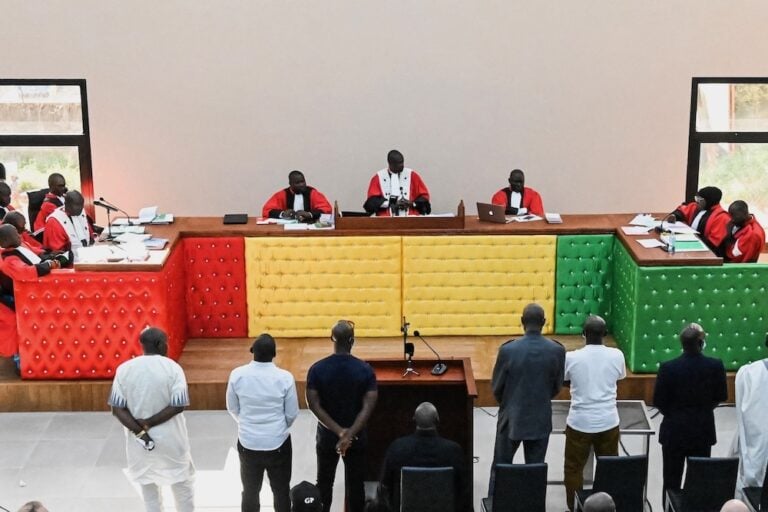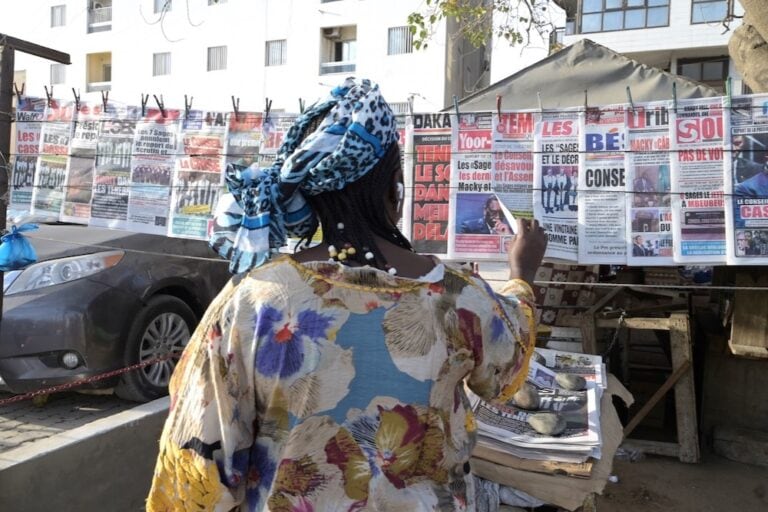(CPJ/IFEX) – The following is a 3 October 2005 CPJ press release: SENEGAL: Three radio stations shuttered by religious leader New York, October 3, 2005 – The Committee to Protect Journalists is troubled by the forced closure on Friday of three radio stations in the Muslim holy city of Touba, center of the Senegalese Muslim […]
(CPJ/IFEX) – The following is a 3 October 2005 CPJ press release:
SENEGAL: Three radio stations shuttered by religious leader
New York, October 3, 2005 – The Committee to Protect Journalists is troubled by the forced closure on Friday of three radio stations in the Muslim holy city of Touba, center of the Senegalese Muslim community known as the mourides.
In a recorded statement broadcast by local radio stations, chief caliph Serigne Saliou Mbacké ordered all three Touba-based FM stations to vacate within three days. The private station Disso, the local branch of state-owned Radio Télévision Sénégalaise (RTS), and the community radio station Hizbut Tarqiyah went off the air, according to local sources.
Founded by Mbacké’s ancestor, the mourides are a traditional Islamic brotherhood that exerts considerable influence over many aspects of Senegalese life. A ruling by the spiritual leader known as the caliph, while not legally binding, carries great practical weight.
According to the independent daily Walfadjri, the caliph said he intended to “preserve the holy city from occult practices contrary to Islam.”
The ban occurred several months after Disso became the first commercial radio station to set up shop in Touba. Local sources told CPJ that the expulsion could be linked to news and discussion programs broadcast by Disso, including a recent phone-in program in which several callers criticized Touba’s elected governing council. Disso’s director, Ibrahima Benjamin Diagne, told CPJ that local politicians influenced the caliph’s action.
In the capital, Dakar, a committee of scholars, journalists, and civil society leaders issued a statement protesting a growing number of threats to press freedom in Senegal. The statement cited the closure of the Touba stations as a prominent recent example.
“This unilateral decision to bar radio stations from broadcasting in Touba is deeply troubling,” said Ann Cooper, CPJ’s executive director. “Senegalese authorities must ensure that journalists are free to report and comment on the news throughout the country without fear of reprisal.”
CPJ is a New York-based, independent, nonprofit organization that works to safeguard press freedom worldwide. For more information, visit http://www.cpj.org.


